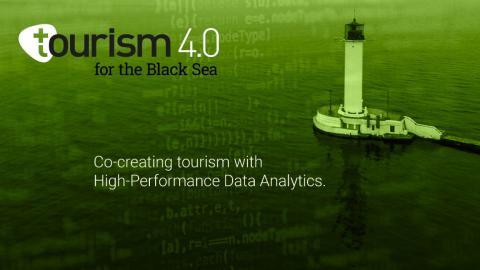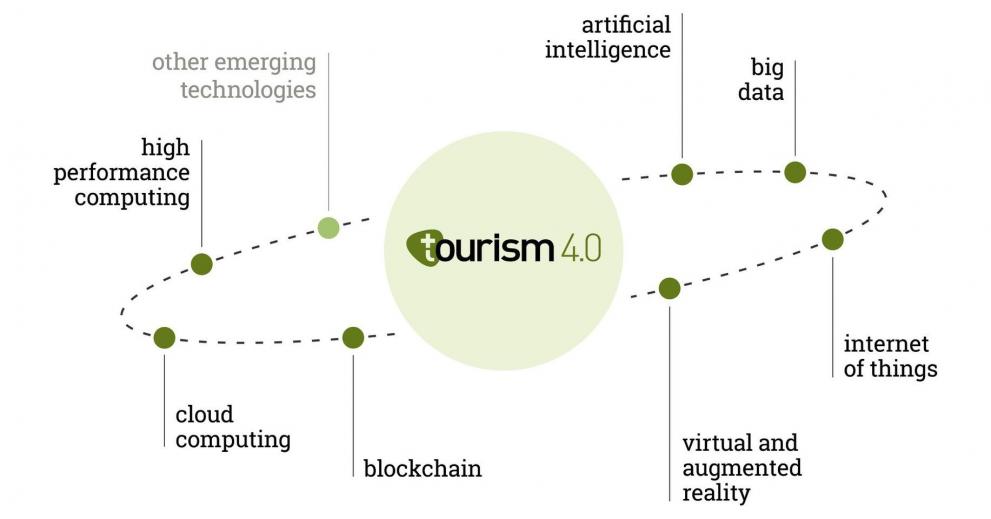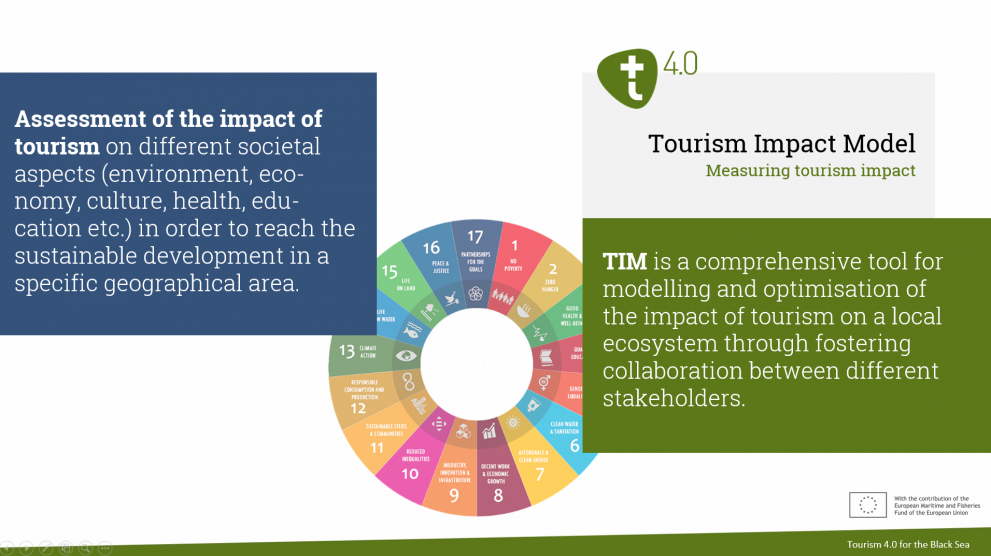
What is the real impact of tourism to local environment?
Tourism has been steadily growing at the Black Sea while the challenges affecting the sustainability of the sector (environmental pressures, peak visits in limited areas, poor overall visibility, etc.) have risen at the same rate (until this year). This very dynamic sector should be supported with Tourism 4.0 technologies to make strategic data-driven decisions and more effective policy measures.
The T4BS project, the first tourism project co-financed by EMFF, brings innovative co-creating and technology into tourism data-driven strategic thinking to boosts the positive impacts of tourism and growth of local socio-economic returns. The project coordinator Arctur introduced the use of Tourism 4.0 tools (Tourism Impact Model, big data analysis, digitalisation…) which provide local governments (on any level) for competent and quick response and offers them a better understanding of current patterns of visits, and encourages innovative touristic services and policies tailored to the regional challenges/opportunities.
Partners form Tourism Institute (GA), NGO Agricola (UA), Universitatea Ovidius Din Constanta and Sano Touring (RO) have been testing a pilot tool Tourism Impact Model to assess the impact of tourism on different societal aspects at specific geographic areas in the Black Sea basin. All locations, large cities or small locations in remote areas of the Danube Delta, share many data gaps and poor access to the data (i.e. bureaucratic obstacles, lack of digitalisation, collected data is not publicly available). Under the guidance of HCL management, the project tries to demonstrate regional stakeholders through a series of workshops the importance of data digitalisation of data collection in the global environment. By fostering dialogue with global platforms like Booking.com, Airbnb on the one hand and regional stakeholders on the other, the T4BS project supports greater understanding and usage of Tourism 4.0 technologies and boosts cooperation.
Also, T4BS project has been among affected by the COVID-19 pandemic. The spring wave of the pandemic caused a delay in the organisation of the first cycle of workshops. We organised the first workshop in Romania just in time of lockdown. Some of the speakers at the workshop were almost stuck in Romania because all the flights were being cancelled, and many participants did not arrive at the event. The next two out of three workshops were organised on-line. The project partners quickly adapted the new technologies, but lack of personal contact was evident in networking and establishing contacts with local stakeholders and data providers. Restrictions have also affected the data collection and testing of the TIM tool, which is more time consuming, requires more coordination and adaptation to the situation. Also, the autumn second cycle of workshops will be on-line again, although many would prefer personal contact.
What is behind Tourism 4.0:

“With innovative co-creation and technology, we are changing the perception of tourism and business sector around it.”
Tomi Ilijaš, Arctur, Slovenia
"Only tools with the capacity to collect and analyse data on local level can sharpen the real picture and allow data driven strategic planning.”
Urška Starc Peceny, Arctur and Tourism 4.0 Partnership, Slovenia
"It is a total challenge and pleasure to experiment new solutions to boost competitive and sustainable tourism in the Black Sea! This is a real opportunity for the region as well all for tourism innovation more generally. I am really happy to be part of it!"
Eleni, HCL Management, Greece
"T4BS is a project which can help Georgian public and private sector acquire technological tools to evaluate the existing state of affairs of tourism in real time for its sustainable development."
Mamuka Berdzenishvili, Tourism Institute, Georgia
"We are very happy that the EMFF support for T4BS has allowed this project to be implemented in Odessa, Ukraine. Together, the Tourism Impact Model and big data analytics are new and very powerful tools for achieving sustainable tourism (which is much needed in our region) while also increasing revenue streams for local government, businesses and local communities along the coast. It has fostered closer cooperation between these stakeholders and a great interest in the Tourism 4.0 approach."
Natalia Goriup, NGO Agricola, Ukraine
"As an incoming tour operator, being partner in T4BS project means for SANO TOURING the opportunity to acquire new information and skills that allow us to contribute to the sustainable development of Romanian destinations in a highly different way than our usual business practice."
Cristina Căluianu, Sano Touring, Romania
"With all this data around us, it should be so much easier to make reasoned choices and adopt planning policy accordingly. Access to open-data should be leading this decision-making process. Ovidius University of Constanța is glad to be part of the team that emphasizes the importance of open-data and big data in fostering tourism development at the Romanian seaside, and in the region of the Black Sea, in a sustainable way, according to the principles of Blue Growth.”
Ovidius University T4BS Team, Universitatea Ovidius din Constanta

Details
- Publication date
- 15 January 2021
- Author
- Executive Agency for Small and Medium-sized Enterprises
